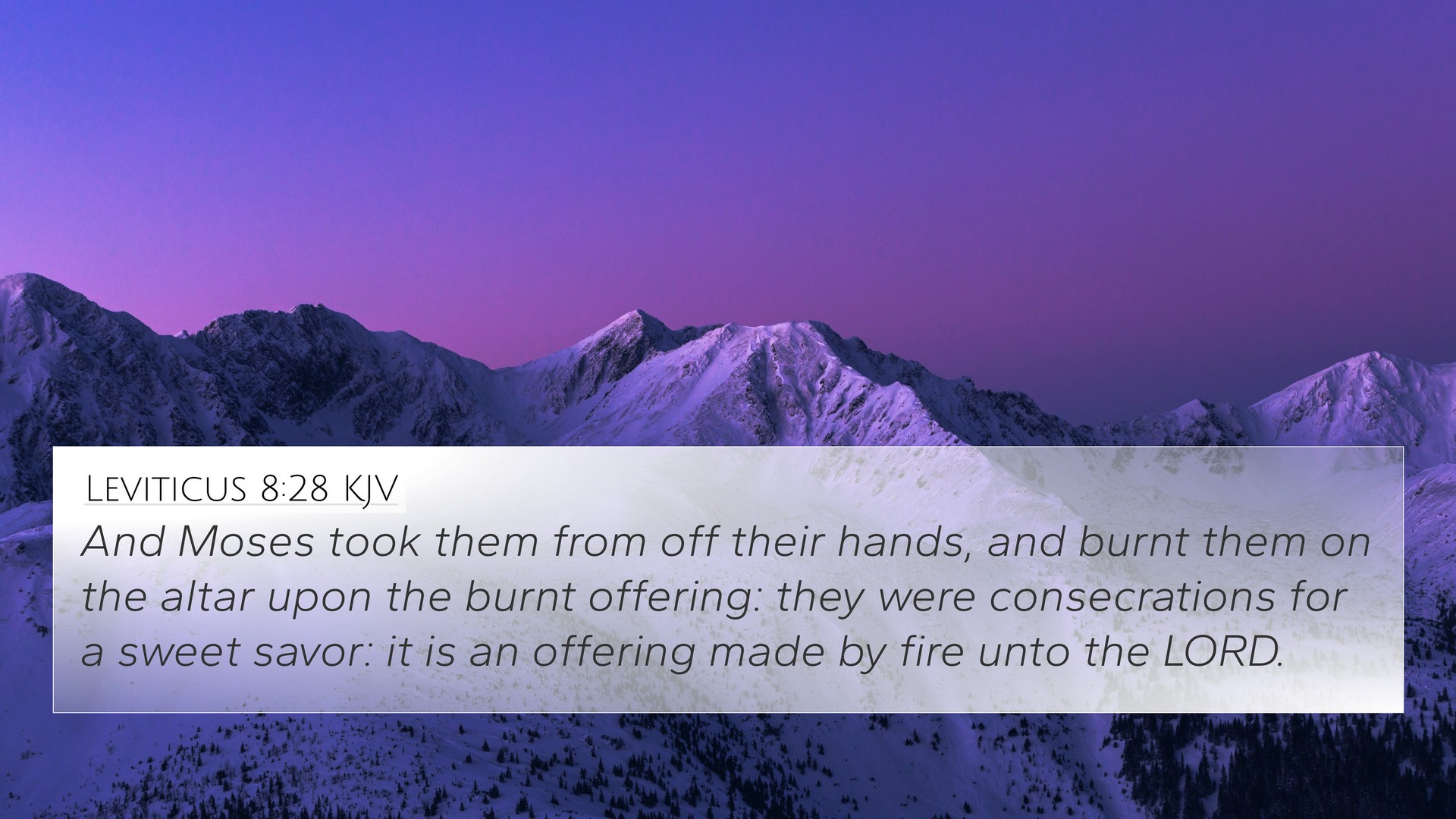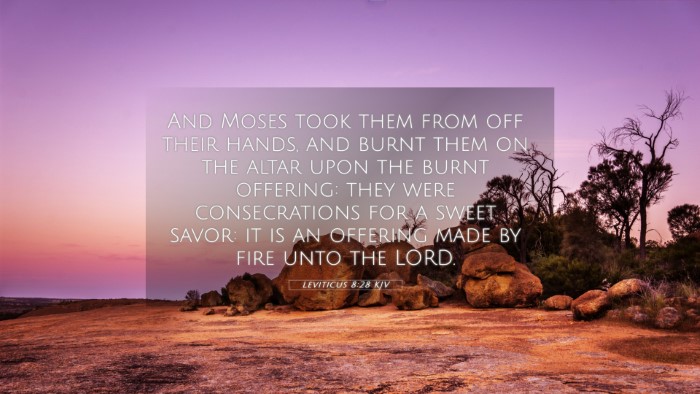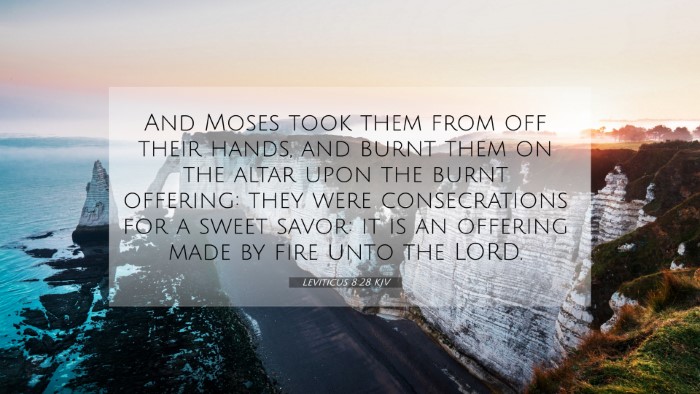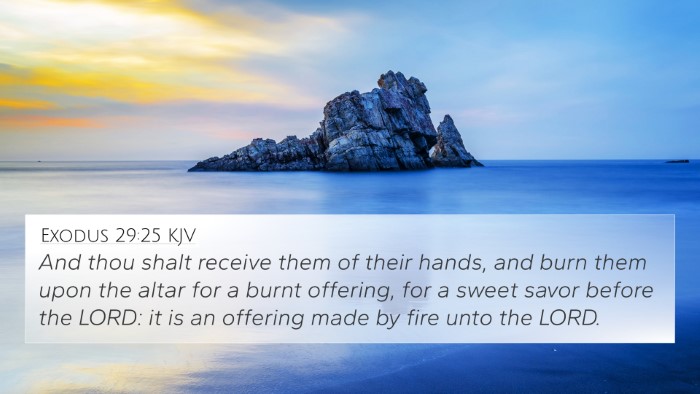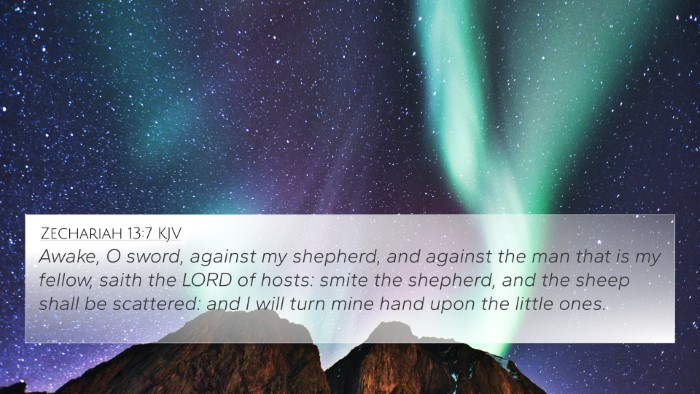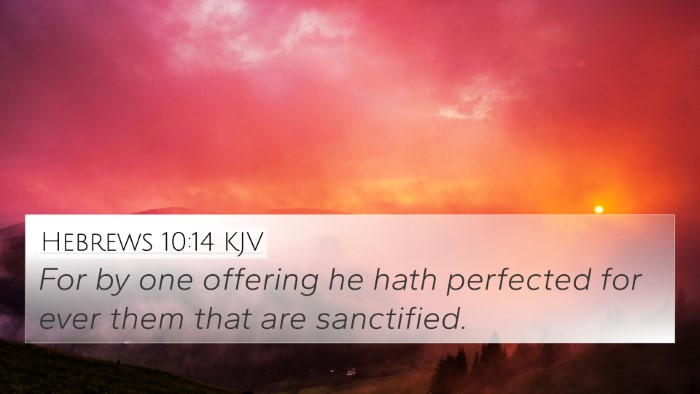Understanding Leviticus 8:28
This passage describes an important event in the consecration of Aaron and his sons as priests. The context is critical for interpreting the meaning of this verse, especially in relation to its themes of obedience, holiness, and divine appointment.
Verse Context
Leviticus 8 outlines the detailed procedure for the consecration of the Levitical priesthood. Aaron and his sons are to be set apart for sacred duties, and this chapter culminates in their anointing, signifying their role in mediating between God and His people.
Verse Text
Leviticus 8:28: "And Aaron and his sons did all things which the LORD commanded by the hand of Moses."
Summary of Biblical Commentary Insights
- Matthew Henry: Henry emphasizes the importance of obedience to God's commands. He notes that Aaron and his sons fulfilled all their duties as prescribed, which highlights their role as obedient servants of God. This obedience is foundational for their priestly ministry.
- Albert Barnes: Barnes points out the gravity of the consecration process. He explains that every detail followed God's instructions meticulously, signifying the seriousness of serving in a holy capacity. It is a foreshadowing of Christ’s ultimate priesthood.
- Adam Clarke: Clarke focuses on the specific role of Moses in this passage as a mediator and leader, indicating that the command of God was communicated through him. This underlines the chain of authority and the importance of following divine instruction in religious practices.
Thematic Connections
Leviticus 8:28 holds several themes that resonate throughout Scripture:
- Obedience: The act of following God's commands is a central theme, illustrated in various instances in both the Old and New Testaments.
- Holiness: The concept of being set apart for God is critical, as seen in the calling of all believers to a life of holiness.
- Divine Appointment: God's choosing of leaders is a recurring motif that emphasizes His sovereignty over human affairs.
Cross-References
Here are some cross-references that relate to Leviticus 8:28, enhancing our understanding of its themes:
- Exodus 28:1: God's appointment of Aaron and his sons as priests.
- Numbers 3:10: The command of God regarding the priests' duties.
- Hebrews 5:4: Discusses the appointment of priests in the New Testament context.
- Romans 12:1: The call for all believers to present themselves as living sacrifices, indicating a priestly role.
- 1 Peter 2:9: The declaration of believers as a holy priesthood.
- Leviticus 10:1-3: The expectations and seriousness surrounding the priestly duties.
- Colossians 3:23-24: A call to serve the Lord in everything we do, echoing the spirit of obedience seen in Aaron and his sons.
Inter-Biblical Dialogue
The sacrificial system and priestly duties set forth in Leviticus culminate in the New Testament, where Jesus fulfills the law and the prophetic elements of priesthood (Hebrews 7-10). This creates a fascinating dialogue between the Old and New Testaments regarding service, sacrifice, and holiness.
Conclusion
In summary, Leviticus 8:28 encapsulates profound themes of obedience, holiness, and divine calling. Understanding this verse in the context of the broader biblical narrative, with relevant cross-references, enriches our insight into God's plan for His people, both in ancient Israel and in the life of the Church today.
